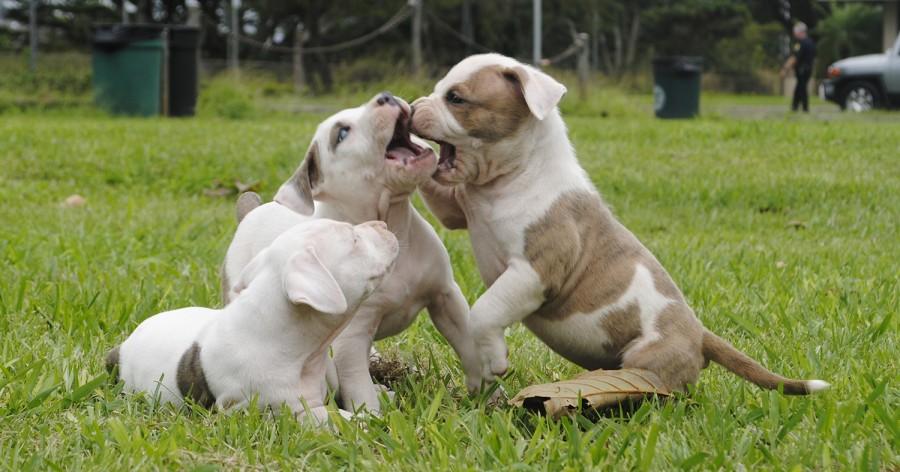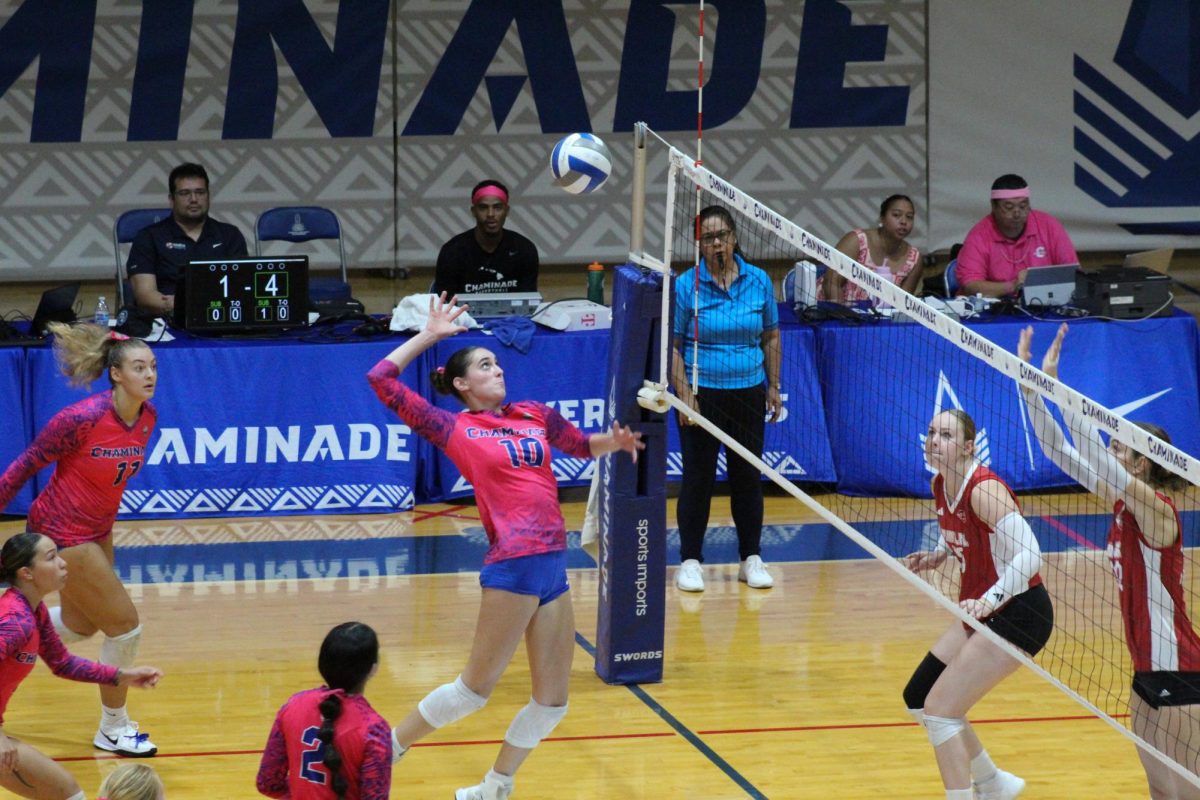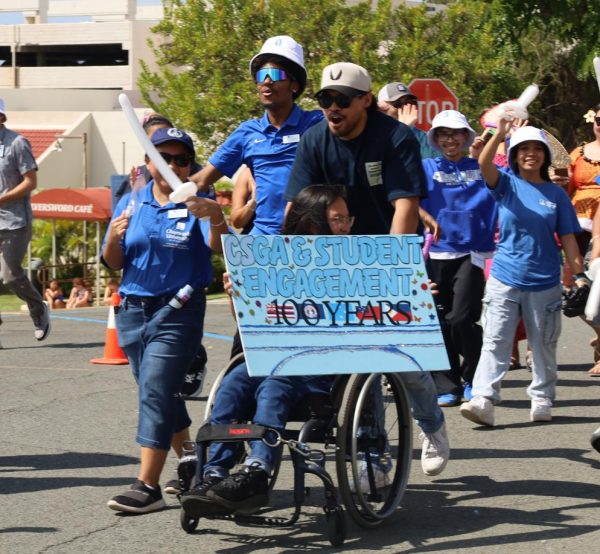There are no bad dogs, only bad people
Pit bull puppies being vicious.
December 4, 2015
A pit bull is “a type of dog that is known for its strength and its ability to fight,” according to Merriam-Webster’s definition.
And according to Google, the pit bull is “a dog of an American variety of bull terrier, noted for its build and often associated with ferocity.”
Though by definition, a pit bull is a noun, media and stereotypes have portrayed pit bulls to sound more like a verb.
Hundreds of years ago, pit bulls were bred for baiting bulls and bears but later became a breed for dog fighting. That alone makes it obvious that the root of these violent misconceptions comes down to the owners, vicious ones who dog fight and train their pit bull to attack.
Today, parents pull their children close to them in fear when they spot a pit bull-type dog nearby.
It is unfortunate that humans are the ones who created such a bad reputation for what is supposed to be one of the most loyal and affectionate breed of dogs.
Brutalizing and misleading stereotypes of pit bulls have grown over the years. It has even gotten to the point in which states have enacted BSL (breed-specific legislation), banning pit bulls in certain cities.
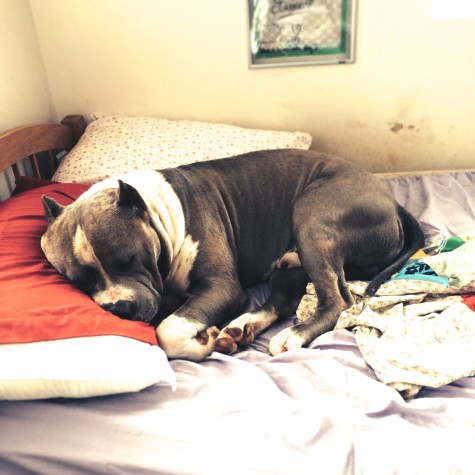
Banning pit bulls will not “improve” the safety in communities with this type of breed. What needs to be addressed is the owners.
What do people first see when they hear about dog attacks? The dog and the breed that dog was. While people are too busy analyzing and trying to come up with solutions to prevent future issues, the real problem is being swept under the rug.
Being an owner of three pit bulls, I cannot stress how important it is to tend to your dog, pit bulls in particular. When trained with love, affection, and respect, pit bulls can become the most loyal friend you will ever have.
Each dog has its own demeanor and personality. Just like any other breed, dogs are greatly influenced by its owner. Any breed has the ability to become aggressive, just as any breed has the ability to become sweet, therapy dogs.
“I don’t believe in judging a dog based on its breed,” said a pit bull owner of nine years Brandi Sasaki. “I believe that it is the environment that the animal is raised in that determines the attitude and personality.”
Moe (AKA “sleep” in Hawaiian; pronounced “Moi,” like the fish) is my 4-year-old pit bull that thinks he is an oversized-human baby. He is by far the mellowest 90-pound dog I’ve ever known. Hence, how he got his name. Moe is just the opposite of every pit bull stereotype. We shared a twin-sized bed together where he insists that my pillow was meant for his big, blocked-size head.
Before deciding I wanted a pit bull, someone told me that because of their aggression, they aren’t good with kids.
Well, Ronson Oleyer is a 5-year-old whose best friend happens to be a pit bull named Maka.
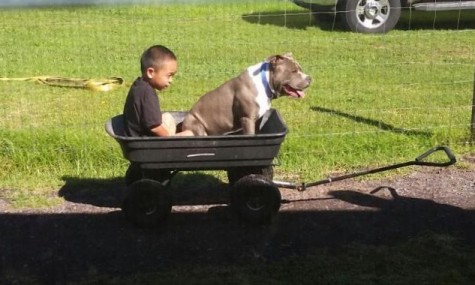
“He’s my favorite pet because he loves me and keeps me safe,” Oleyer said. “I liked taking him for ride on my tractor, but he was smaller.”
With all the negative assumptions about pit bulls in our society, pit bulls and people can live harmoniously if given the chance.
The history of pit bulls demonstrates that this strong-minded dog will quickly attempt to dominate the household if not properly trained. We cannot change the history of the breed. We can, however, change the future for the breed.
“Don’t abuse them, but give them necessary discipline,” said an owner of a 1-year-old pit bull Keanu Carmichael. “Raise your pit how you would raise your own child.”
